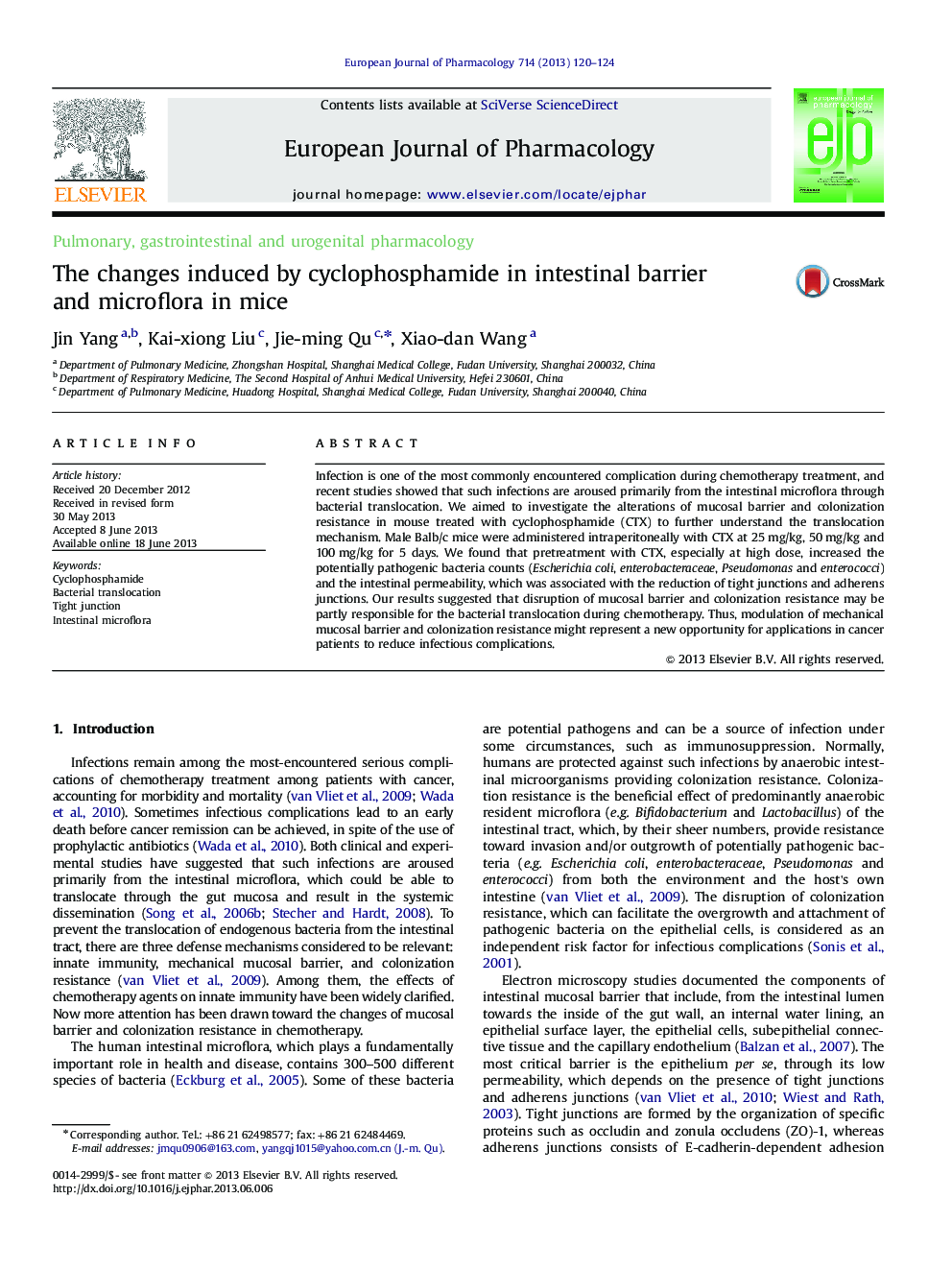| Article ID | Journal | Published Year | Pages | File Type |
|---|---|---|---|---|
| 5828608 | European Journal of Pharmacology | 2013 | 5 Pages |
Abstract
Infection is one of the most commonly encountered complication during chemotherapy treatment, and recent studies showed that such infections are aroused primarily from the intestinal microflora through bacterial translocation. We aimed to investigate the alterations of mucosal barrier and colonization resistance in mouse treated with cyclophosphamide (CTX) to further understand the translocation mechanism. Male Balb/c mice were administered intraperitoneally with CTX at 25Â mg/kg, 50Â mg/kg and 100Â mg/kg for 5 days. We found that pretreatment with CTX, especially at high dose, increased the potentially pathogenic bacteria counts (Escherichia coli, enterobacteraceae, Pseudomonas and enterococci) and the intestinal permeability, which was associated with the reduction of tight junctions and adherens junctions. Our results suggested that disruption of mucosal barrier and colonization resistance may be partly responsible for the bacterial translocation during chemotherapy. Thus, modulation of mechanical mucosal barrier and colonization resistance might represent a new opportunity for applications in cancer patients to reduce infectious complications.
Related Topics
Life Sciences
Neuroscience
Cellular and Molecular Neuroscience
Authors
Jin Yang, Kai-xiong Liu, Jie-ming Qu, Xiao-dan Wang,
